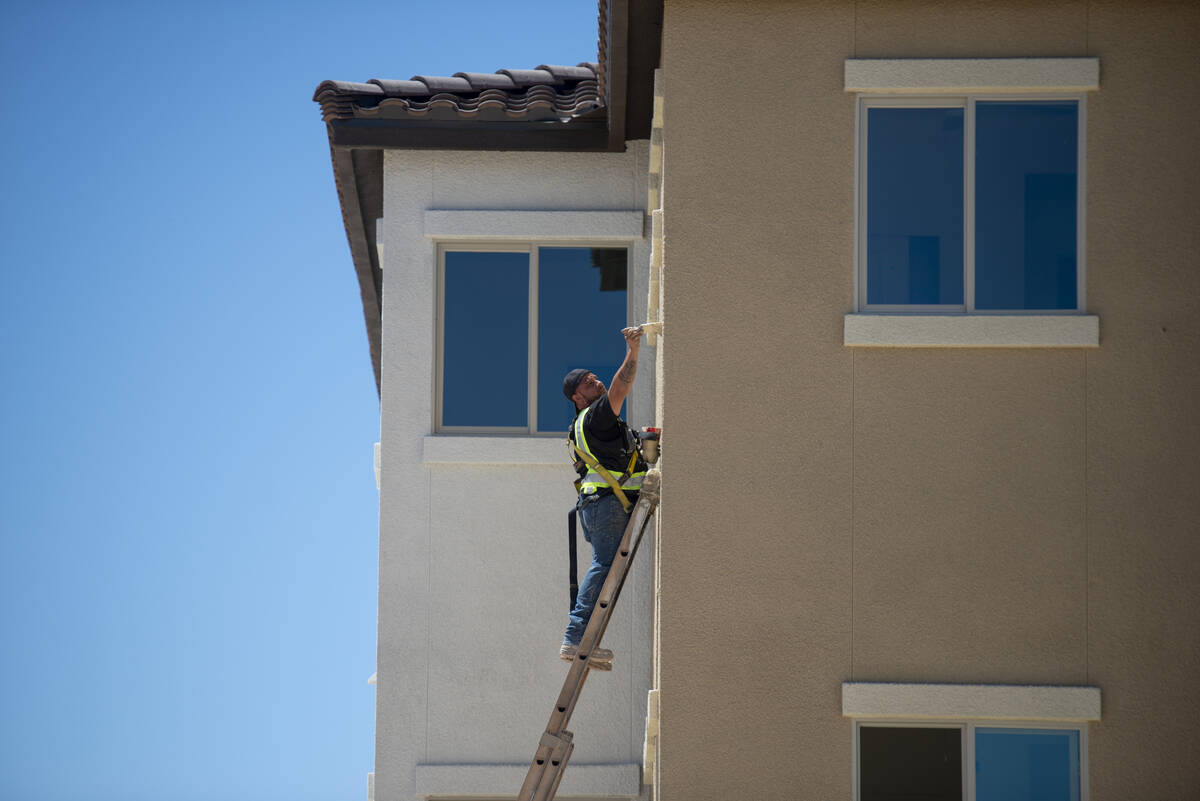Constructing a new house? Following these energy codes could save you money
Energy codes are not up to par in most of Nevada or across the country, costing residents money and further warming the planet, advocates said at a news conference Tuesday.
Two of the biggest financial backers of mortgages — the Federal National Mortgage Association (Fannie Mae) and the Federal Home Loan Mortgage Corp. (Freddie Mac) — do not require new construction projects they fund to follow best practices set forth by the 2021 International Energy Conservation Code.
That’s problematic, since any new residential construction will require more energy use to keep the indoors comfortable in the face of extreme heat and frigid winters, said Mark Kresowik, policy director at nonprofit American Council for an Energy-Efficient Economy.
“This would significantly improve the energy efficiency by requiring additional insulation and air sealing that can contribute to keeping more of the warm air in the winter and the cold air in the summer inside the home,” he said.
Green energy groups are calling for the Federal Housing Finance Agency, which regulates lending agencies, to step up and make all new construction comply with the more stringent 2021 guidelines. The agency didn’t respond to requests for comment Tuesday.
Clark County started requiring all new building permits to comply with the 2021 standards since Oct. 23, but less stringent rules still apply outside of Clark County.
The lack of a sweeping federal requirement for all lenders to follow the most up-to-date energy codes for new constructions is depriving Nevadans of what could be a 9.7 percent reduction in their NV Energy bill, or about $181 every year, said Nevada Rep. Howard Watts, a Democrat from Las Vegas’ 15th district.
Roughly 29 percent of households in Nevada struggle to pay their energy bills, according to data from the U.S. Energy Information Administration.
“It will benefit us all to make sure that every community across our state is constructing to these higher standards that are going to save people money,” Watts said.
Nevada adopted the 2018 version of the International Energy Conservation Code in June of that same year. However, it’s up to county governments to make sure builders follow the guidelines at the local level, said Robin Yochum, the Building Performance Association’s director of programs and partnerships who used to work in Nevada’s State Energy Office.
The state Department of Energy has committed to reviewing the most recent energy codes every three years.
Contact Alan at ahalaly@reviewjournal.com. Follow @AlanHalaly on X.

















